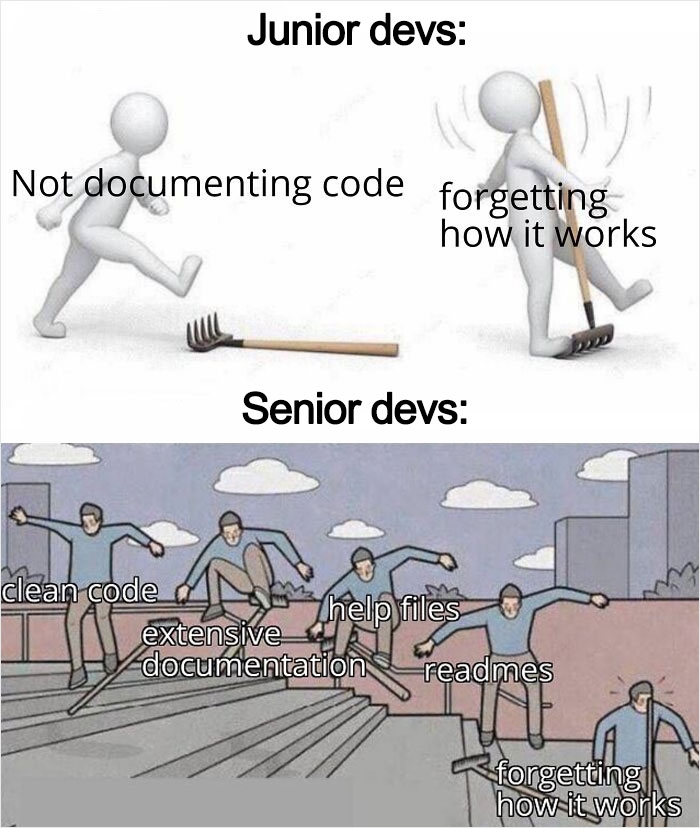this post was submitted on 02 Oct 2023
1532 points (98.4% liked)
Programmer Humor
33546 readers
254 users here now
Post funny things about programming here! (Or just rant about your favourite programming language.)
Rules:
- Posts must be relevant to programming, programmers, or computer science.
- No NSFW content.
- Jokes must be in good taste. No hate speech, bigotry, etc.
founded 5 years ago
MODERATORS
you are viewing a single comment's thread
view the rest of the comments
view the rest of the comments

I agree with your team lead wholeheartedly, but not for the reasons he would tell you. Comments should be used when code is too complex for the "name your variables nouns and your methods verbs" convention doesn't communicate what the code does in a narrative fashion. Thing is, that level of complexity is definitely a code smell. You seem to be saying that clarifying comments are the solution, he seems to think that you should be able to rename vars and methods until the meaning is clear, and Im offering a third way: figure out why the fuck the code is doing something hard to understand and maybe try to unfuck it, then resort to comments if and only if that's not possible. Remember that a code smell isn't necessarily something that needs to be removed, it's just a flag that says "let's make double damn sure there isn't a better way to do this before we do it this way".
Yes, you don't need to comment "n++" to say it is incrementing it but you should mention why you are starting with 1 instead of 0, etc. Boundary conditions are notoriously tricky and need to be documented. Then there are historical reasons that are NEVER obvious, "This function has to return -2 as a default because we've been calling it using X for years and it expects a -1 as the error..."
Thats exactly the kind of thing I'm talking about when I say to prioritize refactoring over comments. If you own the system returning the error code, drag it out of the 1970s and have it return an error object with some actual information in it instead. If you don't own the system, wrap the error code in an enum that adds syntactic meaning or do a map of integer and exception and then return the mapped exception. The very last resort, after you've tried everything else, should be
return -1; //-1 indicates successI've worked on satellite command and control software that is literally using a 1970s OS. The code is limited for historical reasons and you have to work with the structure you are given.
okay. doesn't mean you still shouldn't refactor or add a layer of abstraction where you can. we're looking for a generalizable principle here and generalizable principles don't assume that you're working with satellites that are older than the dev.